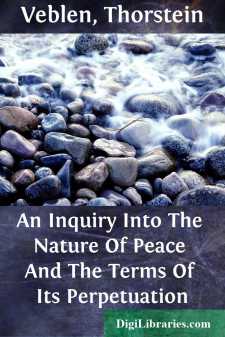History
- Africa 30
- Americas (North Central South West Indies) 50
- Ancient 68
- Asia 58
- Australia & New Zealand 8
- Canada 41
- Caribbean & West Indies 1
- Civilization 20
- Eastern Europe 12
- Europe 310
- Expeditions & Discoveries 60
- General 77
- Historical Geography 1
- Jewish 9
- Latin America 3
- Medieval 8
- Middle East 13
- Military
- Revolutionary 8
- Study & Teaching 5
- United States 353
- Western Europe 56
- World 13
Military Books
Sort by:
Introduction. The Salvation Army was founded by William Booth in London, England, in 1865. Previous to this time Mr. Booth had been a successful clergyman in the Methodist Church, and had become widely known throughout England as a revivalist. As time passed, he had become more and more interested in the condition of the un-churched masses, and as his church did not approve of his taking up work among...
more...
The Value of the One Lucy Lee laid her head on her pillow and, looking through the silence and darkness, smiled up to God. She had won her first soul for Him, and now made her offering. The capture was not a drunkard, nor an outcast–many of whom, in years to come, she was to wrestle over and deliver–but her own sister, whose golden hair lay over the pillow beside her, and whose regular breathing...
more...
by:
M. E. Bewsher
In the year 1812, Napoleon Buonaparte, after conquering nearly the whole of Europe, invaded Russia, and led his victorious army to Moscow, the ancient capital of that country. Soon this city, with its winding streets, its hills, its splendid churches, its fine houses and cottages so mixed together, its corn-fields, woods, and gardens, as well as the Kremlin, consisting of several churches, palaces, and...
more...
INTRODUCTION Tacitus held the consulship under Nerva in the year 97. At this point he closed his public career. He had reached the goal of a politician's ambition and had become known as one of the best speakers of his time, but he seems to have realized that under the Principate politics was a dull farce, and that oratory was of little value in a time of peace and strong government. The rest of...
more...
by:
Thorstein Veblen
CHAPTER I Introductory: On the State and its Relation to War and Peace To many thoughtful men ripe in worldly wisdom it is known of a verity that war belongs indefeasibly in the Order of Nature. Contention, with manslaughter, is indispensable in human intercourse, at the same time that it conduces to the increase and diffusion of the manly virtues. So likewise, the unspoiled youth of the race, in the...
more...
Again war. Again sufferings, necessary to nobody, utterly uncalled for; again fraud; again the universal stupefaction and brutalization of men. Men who are separated from each other by thousands of miles, hundreds of thousands of such men (on the one hand—Buddhists, whose law forbids the killing, not only of men, but of animals; on the other hand—Christians, professing the law of brotherhood and...
more...
I have thus purposely sketched the leading features of a couple of momentous, although not eventful, years—so far as the foreign policy of the Republic is concerned—in order that the reader may better understand the bearings and the value of the Advocate's actions and writings at that period. This work aims at being a political study. I would attempt to exemplify the influence of individual...
more...
These volumes make a separate work in themselves. They form also the natural sequel to the other histories already published by the Author, as well as the necessary introduction to that concluding portion of his labours which he has always desired to lay before the public; a History of the Thirty Years' War. For the two great wars which successively established the independence of Holland and the...
more...
by:
Elmore Barce
PREFACE In presenting this book to the general public, it is the intention of the author to present a connected story of the winning of the Northwest, including the Indian wars during the presidency of General Washington, following this with an account of the Harrison-Tecumseh conflict in the early part of the nineteenth century, ending with the Battle of Tippecanoe. The story embraces all of the early...
more...
The dagger of Jacques Clement had done much, and was likely to do more, to change the face of Europe. Another proof was afforded that assassination had become a regular and recognised factor in the political problems of the sixteenth century. Another illustration was exhibited of the importance of the individual—even although that individual was in himself utterly despicable—to the working out of...
more...











